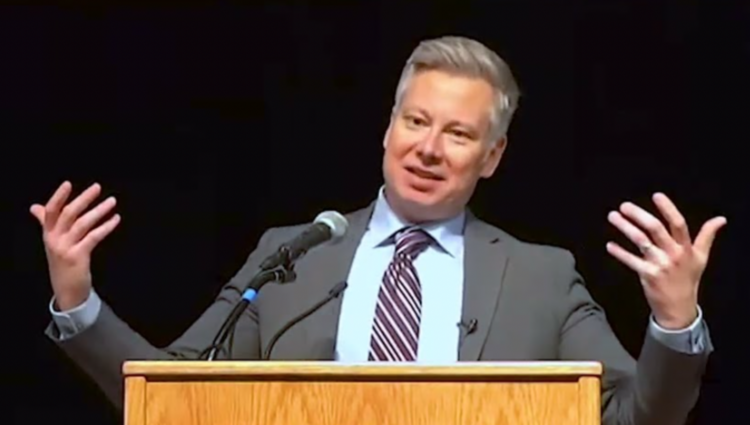Should You Try Writing Poetry?
Glenn Arbery at The Imaginative Conservative

Twice in my teaching career, I have asked students to write a poem as one of the requirements for a writing course. I asked for a Petrarchan sonnet, which meant that it should be fourteen lines of iambic pentameter, divided into the octave (eight lines) with an abbaabba rhyme scheme, and the sestet (six lines) with a different rhyme scheme, preferably cdecde. The octave should set up a problem or situation (for example, Wordsworth’s complaint that “the world is too much with us”) that the sestet would answer or address. For some students, though it was not easy, it was a welcome and pleasant exercise. Several of them wrote vivid sonnets and demonstrated a talent they had perhaps not fully recognized. What if young Will Shakespeare had never been required to compose in Latin verse? Would he ever have realized his talent or explored the possibilities of English? Thomas Gray imagines a “mute inglorious Milton” buried in a country churchyard.
Others of my students were probably like Shakespeare’s schoolmates in Stratford: it was torment. How could they force the living intensity of their thought into the shackles of iambic pentameter in lines that not only had to rhyme but also had to make sense and even be emotionally engaging? Squeezing out a sonnet took weeks of effort and revision; it was painful to witness. I remember one older student who confessed to me that he simply couldn’t get the idea of meter, and his sonnet proved it. As with math for some, he had a mental block. It’s as though he had received instructions to move forward across the room by starting to fall forward and advancing one foot at the last split-second to keep himself upright and then repeating the movement with the other foot and then reenacting the sequence, which sounds awkward, unnatural, lurching. But how else do you describe walking? The description of meter seemed just as unnatural to him (counting syllables, paying attention to lighter and heavier stresses, etc.), but later that same year I heard him singing songs that he had written—beautiful, moving ballads. He never suspected that he had written them in traditional English meter.
Writing poetry helps a reader understand excellence. Reading poetry without ever having tried to write in verse is like watching baseball without ever having felt the seams of a ball or pounded your fist into the web of a glove or swung a bat and felt the sweet, solid contact. How do you really appreciate a great shortstop or third baseman if you’ve never seen a ground ball come screaming at you so fast that everything is reflex? Or a great outfielder if you’ve never run across the grass, gauging the trajectory of a fly ball? We’re embodied creatures. It takes experience to feel both our capacities and our limits, and that same experience enables us to recognize and judge real excellence that exceeds our own. Our outdoor program is hands-on. I’m thinking now that the same should be true of what we ask of our students in writing. “True ease in writing comes from art, not chance,” writes Alexander Pope, “As those move easiest who have learn’d to dance.” Maritain would agree—and so would James Matthew Wilson. Students of poetry need to get their bodies into the language to get the measure of the game.
Read the rest


